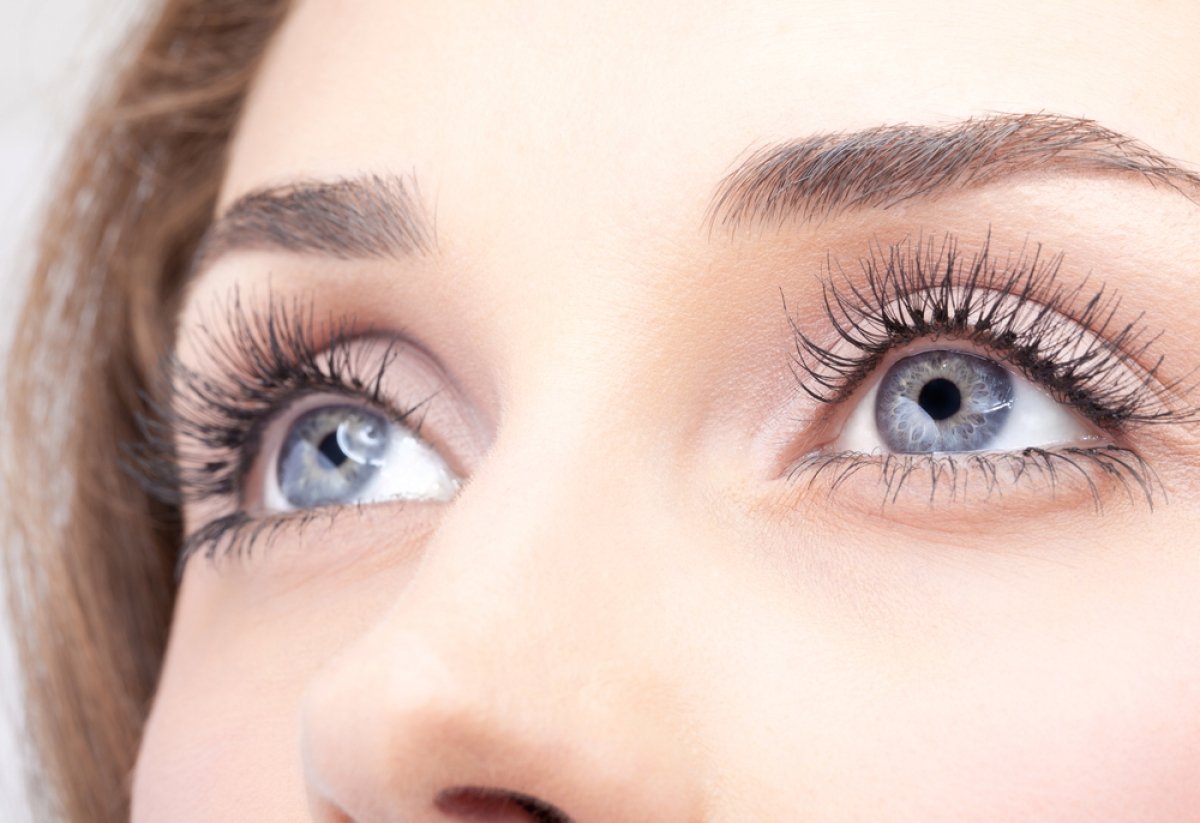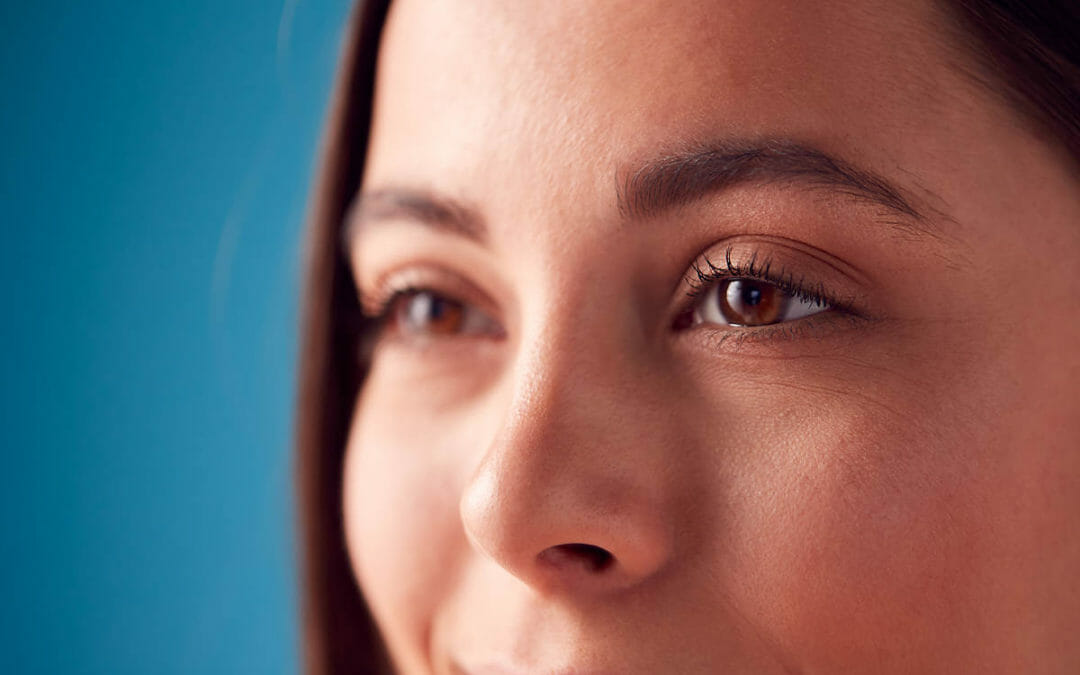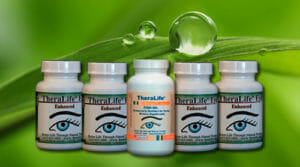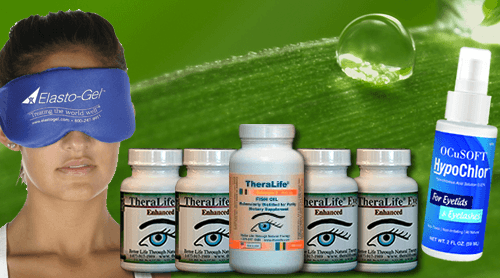Embracing Nature: Can Uveitis Be Cured Through Natural Remedies And Techniques?
Uveitis is an inflammatory eye disorder that can cause blindness if left untreated. This condition has no known cure, but recent research suggests that natural remedies and techniques may be able to reduce the severity of symptoms and improve overall vision health.
Embracing nature in terms of lifestyle changes and therapeutic practices could provide a viable solution for many people suffering from uveitis. In this article, we will explore how different types of natural treatments could potentially benefit those with uveitis.
Uveitis is commonly classified into five subtypes: anterior, intermediate, posterior, panuveitic, or diffuse choroiditis. Each type is associated with its own set of symptoms and treatment options; however, there have been limited studies conducted on the efficacy of natural remedies in managing these conditions.
The aim of this article is to review existing evidence on the potential benefits of incorporating various natural approaches into a comprehensive treatment plan for those diagnosed with uveitis.
Overview Of Uveitis
Uveitis is a debilitating condition that can have immense impacts on a person’s life. It consists of inflammation in the eye, leading to extreme discomfort and even vision loss if left untreated.
While many view uveitis as an incurable illness without hope for improvement, there is actually much that can be done to reduce its symptoms through natural remedies and techniques. Reducing stress, monitoring symptoms, and embracing nature are all ways to proactively manage this difficult disorder.
The potential benefits of natural treatments such as herbal supplements, acupuncture, or yoga should not be underestimated when it comes to managing uveitis-related pain and swelling. Herbal supplements may help reduce inflammation while acupuncture has been known to improve circulation in the eyes—both providing relief from uncomfortable symptoms associated with the disease.
Similarly, engaging in regular physical activity helps minimize stress levels which are often linked to flare-ups of the condition. In addition, practicing relaxation exercises like yoga or meditation can also aid patients in finding balance between their body and mind allowing them to better cope with their diagnosis.
By taking advantage of these simple yet powerful tools available for those living with uveitis, individuals can gain greater control over the effects of their condition. With proper guidance from medical professionals combined with holistic approaches such as natural treatment methods discussed here today people may find themselves empowered and ready to take charge of their health journey despite any obstacles along the way.
The Benefits Of Natural Treatments
Using natural remedies and techniques to treat uveitis has a number of potential benefits, including the avoidance of harsh pharmaceuticals. Studies have shown that some forms of inflammation associated with uveitis can be managed through diet, lifestyle changes and specific natural supplements:
– Natural therapies are often gentler on the body than traditional medications, making them an attractive option for patients who want to reduce their risk of side effects.
– Many natural treatments such as yoga, meditation, tai chi or acupuncture may also help provide relief from stress, which is an important factor in managing inflammation.
– Eating more fresh fruits and vegetables, reducing processed foods and adding certain natural supplements like fish oil to one’s daily routine can all help improve overall health while supporting healthy eyesight.
These simple lifestyle changes combined with natural supplements can make a big difference in alleviating symptoms of uveitis and improving overall quality of life.
Powerful Uveitis Treatment from TheraLife- All Natural
Types Of Uveitis
Uveitis is a condition characterized by inflammation of the uvea, which includes the iris, ciliary body and choroid. It affects approximately 1 in 5,000 people worldwide with an estimated 200,000 cases each year in the United States alone.
Uveitis can vary in severity and cause visual symptoms such as blurred vision or complete loss of vision depending on its location within the eye. It is important to note that if left untreated, it can lead to severe complications like cataracts or glaucoma.
The management of uveitis includes symptom relief through medications as well as lifestyle changes such as diet modifications and avoiding certain triggers. Visual symptoms are usually managed using topical steroids or non-steroidal anti-inflammatory drugs (NSAIDs). In some cases, systemic immunosuppressants may be recommended for more severe forms of uveitis.
Additionally, patients should work with their doctor to identify any potential triggers that could be causing their uveitis flare-ups and then take steps to avoid them. Patients suffering from this chronic condition should also talk to their healthcare provider about methods of symptom control and discuss natural remedies for managing pain and discomfort associated with uveitis flares.
Some possible solutions include acupuncture, massage therapy, yoga or tai chi classes, hot/cold compresses and relaxation techniques like meditation and deep breathing exercises. These treatments have been found to help reduce stress levels and improve overall health outcomes for those living with this condition.
Diet Changes
Uveitis is a condition that requires medical attention, but lifestyle and diet changes can play an important role in the treatment of disease.
Exercise changes are recommended as part of any uveitis management plan to help reduce inflammation associated with the disorder and improve overall wellbeing. This may include aerobic exercise such as running or swimming, strength training, yoga, or tai chi. Additionally, regular physical activity increases muscle strength and flexibility which can be beneficial for those suffering from symptoms common to uveitis.
Making certain lifestyle adjustments can also have positive effects on managing uveitis related issues. This includes avoiding smoking and limiting alcohol consumption, getting adequate restful sleep each night, reducing stress levels through relaxation techniques like meditation or deep breathing exercises, and making sure to take breaks throughout the day when feeling fatigued or overwhelmed.
Taking measures to protect eyesight by wearing sunglasses while outdoors will also prove helpful in controlling flare-ups caused by direct sunlight exposure.
It is essential for individuals living with uveitis to work collaboratively with their healthcare team to create a personalized treatment plan that takes into account dietary needs and nutritional requirements. Eating foods high in fiber such as fruits, vegetables, legumes, nuts, seeds, whole grains and healthy fats found in fish oils offer numerous health benefits including helping control inflammation. Avoiding processed foods rich in sugar and saturated fat should also be part of an effective strategy for managing this eye condition.
Herbal remedies have been used for centuries by traditional healers across cultures around the world for treating various ailments including uveitis-related complications. While there isn’t much scientific evidence to support these claims yet further research could reveal potential therapeutic properties present within plant extracts which may provide relief from symptoms associated with this disorder.
Herbal Remedies
Herbal medicine is a form of traditional healing that has been used for centuries.
Herbal supplements are preparations made from plants that are used to prevent and treat diseases.
Herbal remedies for uveitis are becoming increasingly popular due to their potential beneficial effects on the condition.
Research has identified a range of herbal preparations that may be effective for treating uveitis, including Ginkgo biloba, turmeric and Boswellia serrata.
Additionally, lifestyle modifications such as stress management, avoiding triggers and eating a balanced diet, may also help to reduce the symptoms of uveitis.
Further research is needed to determine the efficacy of herbal remedies for uveitis and their long-term safety.
Herbal Medicine
Herbal medicine has been used for centuries to treat various diseases and ailments. Herbal tonics, aromatherapy oils, and other natural remedies are being studied as possible treatments for uveitis.
Research suggests that herbal medicines may be beneficial in treating inflammatory conditions such as uveitis. However, the effectiveness of specific herbs is not yet fully understood due to a lack of clinical studies conducted on humans. It is recommended that patients consult their doctor before trying any herbal remedy or supplement for this condition.
A variety of herbs have been suggested as potential treatments for uveitis including turmeric, boswellia, ginger, ginkgo biloba, ashwagandha and licorice root. Turmeric contains curcumin which is thought to help reduce inflammation while boswellia can provide relief from joint pain associated with chronic eye conditions like uveitis. Ginger also has anti-inflammatory properties while ginkgo biloba helps improve circulation throughout the body which could help support healthy eyesight in cases of uveitis. Ashwagandha and licorice root are two additional herbs believed to play an important role in managing symptoms associated with this condition.
Aromatherapy oils such as lavender oil or chamomile oil have also been suggested as possible treatments for uveitis due to their calming effects on both the mind and body. Essential oils can be used topically or through inhalation to potentially reduce inflammation caused by this condition. While more research needs to be done regarding these claims, many people have reported positive results when using essential oils along with traditional medications prescribed by their healthcare provider.
Herbal Supplements
In addition to herbal medicines, other natural remedies such as herbal supplements may also be beneficial for treating uveitis. Herbal supplements are made from concentrated extracts of herbs and can provide higher dosages of active ingredients than would be found in raw herb form.
Commonly used supplements for uveitis include turmeric extract, boswellia serrata, ginger root extract, ginkgo biloba extract, ashwagandha root powder, and licorice root powder. Studies suggest that these supplements may have anti-inflammatory properties which could help reduce symptoms associated with this condition. However, it is important to consult a doctor before taking any supplement or changing current medications prescribed by a healthcare provider.
Essential oils are another type of natural remedy that has been suggested as potential treatments for uveitis due to their calming effects on the mind and body. Essential oils like lavender oil and chamomile oil can be applied topically or inhaled in order to potentially reduce inflammation caused by this condition.
While more research needs to be done regarding essential oils’ effectiveness against uveitis, many people report positive results when combining traditional medications with aromatherapy oils such as those mentioned above.
Overall, there is an array of natural remedies available for managing symptoms related to uveitis including herbal medicines, herbal supplements, and essential oils. It is important to speak with a doctor before starting any new treatment regimen since some herbs and supplements can interact negatively with certain medications if taken together. Additionally, not all products containing these substances will have the same potency or even contain the correct amount of active ingredients so it is best to source quality items from trusted sources whenever possible.
Herbal Remedies For Uveitis
Herbal remedies are an increasingly popular method for managing the symptoms of uveitis. They contain active ingredients that can provide anti-inflammatory, antioxidant and other health benefits which could help reduce discomfort associated with this condition.
In addition to herbal medicines, there are also a variety of natural therapies such as exercise therapy and hydrotherapy available for treating uveitis. Exercise therapy is often used to improve physical functioning and reduce inflammation while hydrotherapy involves soaking in warm water or applying hot or cold compresses to affected areas.
Both these techniques may be beneficial when combined with traditional medications prescribed by a healthcare provider. While more research needs to be done on the effectiveness of these treatments, many people have reported positive results from using them alongside their existing treatment plans.
Yoga And Meditation
The power of nature to heal is like a symphony. When each individual element is in harmony, the melody will be beautiful and soothing for all who listen. For those suffering from Uveitis, harnessing this energy can bring much needed relief from pain and discomfort.
Through mindful practices such as Yoga and Meditation, we can tap into the mind-body connection to help alleviate symptoms associated with Uveitis.
Yoga is an ancient practice that connects us more deeply with our physical body through breathing exercises and poses designed to align both the mind and body. Mindfulness meditations create space between our thoughts so that we become aware of how they impact us emotionally, physically, mentally and spiritually.
These practices are beneficial because they slow down activity within the nervous system allowing us to access deeper states of relaxation which helps reduce inflammation throughout the body including areas affected by Uveitis.
By engaging in regular mindfulness practices, individuals gain greater awareness of their own physical sensations which allows them to better recognize when something needs attention or healing. This insight combined with deep relaxation techniques teaches people how to stay connected with their bodies even during difficult times enabling them to take action if necessary before any issues worsen.
Mood:
– Focus on peace
– Connecting with oneself
– Finding balance
Physical Benefits:
– Relief from pain & discomfort
– Reduced inflammation
– Improved posture & alignment
Mental/Emotional Benefits:
– Greater self-awareness
– Slower thought processes leading to clarity of mind
– Increased focus & concentration
Through yoga and meditation, individuals can learn how to maintain a sense of inner calm while managing uncomfortable feelings caused by uveitis. By accessing the mind-body connection through these age old practices, sufferers experience improved moods along with physical benefits such as reduced inflammation as well as mental emotional ones like increased self-awareness which enables one to make changes when needed before further complications arise. Moving on now towards another natural way of dealing with uveitis – acupuncture and acupressure…
Acupuncture And Acupressure
Acupuncture and acupressure are two forms of traditional Chinese medicine (TCM) that have been used in the treatment of uveitis. Acupuncture is a technique involving the insertion of thin, sterile needles into specific points on the body to stimulate energy pathways known as meridians. Through this stimulation, acupuncture helps to promote natural healing and relaxation within the body.
On the other hand, acupressure involves applying pressure with massage-like movements onto certain areas of the body without using needles. Both techniques can be beneficial in relieving symptoms associated with uveitis such as redness and pain.
In addition to these TCM therapies, mindfulness practices and lifestyle modifications may also help improve outcomes for patients suffering from uveitis. Mindfulness practices involve focusing attention and awareness on one’s thoughts, feelings, sensations, or environment by simply observing them nonjudgmentally. Research suggests that practicing mindful meditation regularly can reduce stress levels and alleviate chronic inflammatory diseases like uveitis.
Similarly, making changes to one’s lifestyle – such as increasing physical activity, reducing alcohol consumption, quitting smoking – has been shown to be beneficial for managing inflammation caused by various conditions including uveitis.
Therefore, both acupuncture/acupressure therapy alongside mindfulness practices and lifestyle modifications could prove useful in helping manage symptoms related to uveitis. As these treatments focus on addressing underlying causes rather than just masking symptoms they can provide more lasting relief while also promoting overall well-being.
Moving forward homeopathy should also be explored as an option for treating this condition.
Homeopathy
Homeopathy is an alternative medical practice which uses very small doses of natural substances, such as plants and minerals, to treat illnesses. This approach works on the premise that these substances can cause similar symptoms in healthy people and can therefore be used to stimulate a healing response in those who are sick.
Homeopathic remedies may include flower essences, essential oils, and other plant extracts. Homeopathy is based on the principle of ‘like cures like’: if something causes certain health problems when taken in large amounts, then it may help alleviate those same issues when taken in very tiny doses.
By using small amount of medication to produce a desired effect, homeopaths believe they are able to target the root cause of illness more effectively than conventional medicine. The goal of homeopathic treatment for uveitis is to restore balance within the body by addressing underlying imbalances or deficiencies through natural means rather than relying solely on medications or procedures.
Common therapies used for this purpose include dietary changes and lifestyle modifications such as stress reduction techniques or exercise regimes. Additionally, some practitioners recommend herbal supplements and/or topical applications of essential oils or flower essences as part of their treatments plans.
Frequently Asked Questions
Are There Any Preventive Measures I Can Take To Avoid Getting Uveitis?
Uveitis is a potentially sight-threatening inflammatory eye condition, and according to the National Eye Institute (NEI), approximately 50,000 Americans are affected by uveitis each year.
While there is no cure for this condition, preventive measures may reduce the risk of acquiring it.
Alternative therapies such as yoga, meditation, and acupuncture have been found to be beneficial in reducing stress levels which can help prevent flare-ups associated with uveitis.
Additionally, avoiding contact lens use or tobacco smoke exposure may also help deter its onset.
Despite these strategies being helpful in prevention, further research is needed on how natural remedies and techniques may aid in managing uveitis symptoms.
Are There Any Other Medical Treatments Available For Uveitis Besides Natural Remedies?
Uveitis is an inflammatory eye condition that can cause pain, blurred vision, and other serious complications.
In addition to natural remedies and techniques, there are several medical treatments available for uveitis.
These may include the use of drugs or immunosuppressants therapy to reduce inflammation and control symptoms.
However, these treatments may also have side effects and should be discussed with a healthcare provider before beginning any type of treatment plan.
How Quickly Can Natural Treatments Help To Improve My Symptoms?
It is no secret that natural remedies and techniques can be a great way to help manage uveitis symptoms. However, the key to success lies in identifying triggers, seeking support, and understanding how quickly these treatments may work.
Satirically speaking, one might suggest that nature has had thousands of years of practice and should have mastered curing this condition by now; however, there are more effective means available today than relying on unproven methods alone.
While it is true that some people experience relief with natural treatments within weeks or months, others find they need medical intervention as well.
It is important for those suffering from uveitis to talk to their doctor about the best approach for managing their condition.
Are There Any Lifestyle Changes I Should Make To Help Manage Uveitis?
Uveitis is an inflammatory condition of the eye that can have serious consequences if left untreated.
In order to help manage this condition, lifestyle modifications should be considered as part of a comprehensive treatment plan.
Reducing stress through relaxation techniques and mindfulness exercises may help alleviate symptoms, while regular eye exercises such as palming or focusing on near and distant objects can also be beneficial for improving vision and stabilizing the eyes.
Additionally, eating a balanced diet rich in vitamins and minerals known to support eye health like Omega-3 fatty acids, lutein, zinc, copper and vitamin A, C and E can also aid in reducing inflammation associated with uveitis.
What Is The Long-Term Prognosis For People With Uveitis?
Uveitis is an inflammatory eye condition that can lead to significant long-term vision impairment if left untreated.
With early detection and management of risk factors, however, the prognosis for people with uveitis can be good.
While there are no guarantees when it comes to a patient’s outcome, careful diagnosis and treatment by a qualified ophthalmologist or optometrist may help reduce the risk of serious complications due to this chronic condition.
Conclusion
Uveitis is a complex condition with varying levels of severity, often requiring medical intervention.
Natural remedies and techniques may provide an effective way to reduce symptoms and improve long-term prognosis for those affected by uveitis.
While lifestyle changes, preventive measures, and other treatments are available, natural approaches have the potential to be highly beneficial in treating this condition.
With careful consideration of the risks and benefits involved, embracing nature through natural remedies can help many people living with uveitis find relief from their symptoms while improving their overall health outcomes.
References
1. Koreishi AF, Zhou M, Goldstein DA: Tubulointerstitial nephritis and uveitis syndrome: Characterization of clinical features. Ocul Immunol Inflamm 17;29(7-8):1312-1317, 2021. doi: 10.1080/09273948.2020.1736311
2. Jabs DA, Nussenblatt RB, Rosenbaum JT Standardization of Uveitis Nomenclature (SUN) Working Group. Standardization of uveitis nomenclature for reporting clinical data. Results of the First International Workshop. Am J Ophthalmol. 2005;140(3):509-516.





